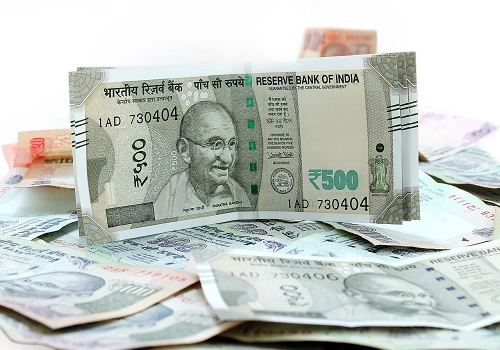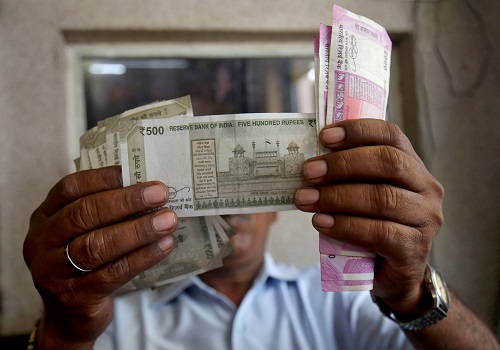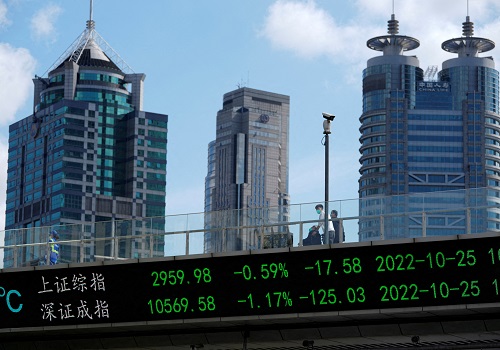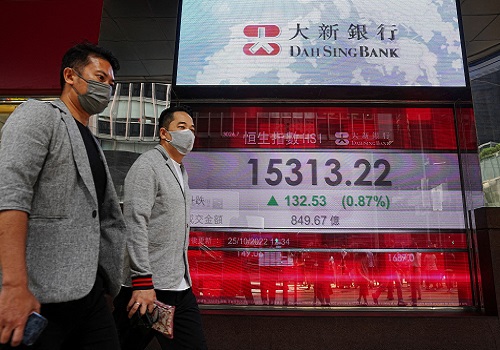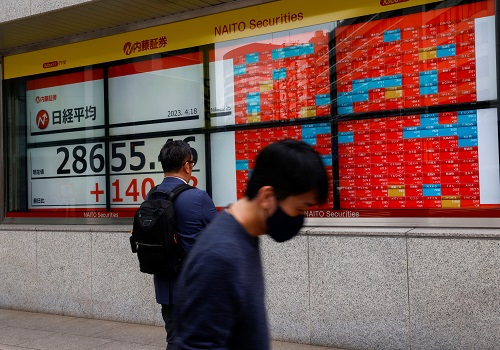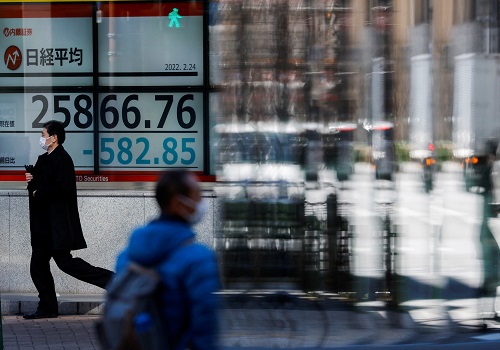Asian stocks ease, dollar subdued as investors tread with caution

Follow us Now on Telegram ! Get daily 10 - 12 important updates on Business, Finance and Investment. Join our Telegram Channel
Asian stocks edged lower on Thursday, while the dollar was on the back foot as investors remained cautious ahead of an expected 25 basis point hike in interest rates by the U.S. Federal Reserve next month.
MSCI's broadest index of Asia-Pacific shares outside Japan was 0.16% lower, while Japan's Nikkei was up 0.07%. Australia's S&P/ASX 200 index was 0.07% lower.
Shares of Tesla Inc slid 6% in after-hours trading after the electric vehicle maker posted its lowest quarterly gross margin in two years, missing market estimates. Elon Musk doubled down on the price war he started at the end of last year, saying Tesla would prioritise sales growth ahead of profit margins in a weak economy.
E-mini futures for the S&P 500 fell 0.25%, while Nasdaq futures slid 0.36%. Investor focus in Asia will be on earnings from Taiwan Semiconductor Manufacturing Co Ltd (TSMC) later in the day, with analysts expecting the company to post a 5% fall in first-quarter net profit.
China's blue-chip CSI 300 Index was down 0.16%, while the Shanghai Composite Index eased 0.22%. Hong Kong's Hang Seng index was 0.6% higher.
Traders are bracing for meetings from central banks in the next few weeks as easing worries over the banking sector brings inflation and monetary policy back into focus.
"Global central banks' narrow focus on combating inflation has gotten more complicated as they are now faced with the added task of maintaining financial stability," said Thomas Poullaouec, head of multi-asset solutions APAC at T. Rowe Price.
A Reuters poll of economists showed the Fed is likely to deliver a final 25-basis-point rate increase in May and then hold rates steady for the rest of the year. Markets are pricing in an 83% chance of the Fed hiking by 25 basis points, CME FedWatch tool showed.
The hawkish rhetoric from Fed speakers continued with Federal Reserve Bank of New York President John Williams saying that the inflation rate is still at problematic levels and that the U.S. central bank will act to lower it.
U.S. economic activity was little changed in recent weeks as employment growth moderated somewhat and price increases appeared to slow, showed a Fed report on Wednesday.
The central bank's latest read on the state of the economy provides a snapshot of business, bank and worker conditions in the aftermath of the mid-March failure of two large regional banks that shook confidence in the U.S. financial sector.
But as fears of a broad crisis eased, volatility has become less wild. On Wednesday, the CBOE Volatility index, nicknamed Wall Street's fear gauge, fell to its lowest point since November 2021.
Meanwhile, benchmark 10-year yields eased to 3.597% in Asian hours after scaling a four-week peak of 3.639% on Wednesday.
The two-year U.S. Treasury yield, which typically moves in step with interest rate expectations, was down 1.3 basis points at 4.252%, having touched 4.286% on Wednesday, the highest since March 15.
In currency markets, the U.S. dollar index fell 0.039%, with the euro up 0.04% to $1.0958.
The yen weakened 0.08% to 134.83 per dollar, while sterling was last trading at $1.2432, down 0.05% on the day.
Elsewhere, U.S. crude fell 0.45% to $78.80 per barrel and Brent was at $82.68, down 0.53% on the day.








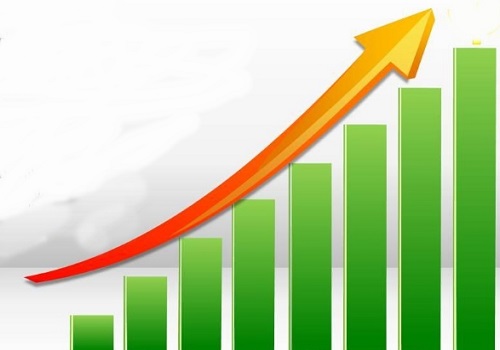



 320-x-100_uti_gold.jpg" alt="Advertisement">
320-x-100_uti_gold.jpg" alt="Advertisement">

